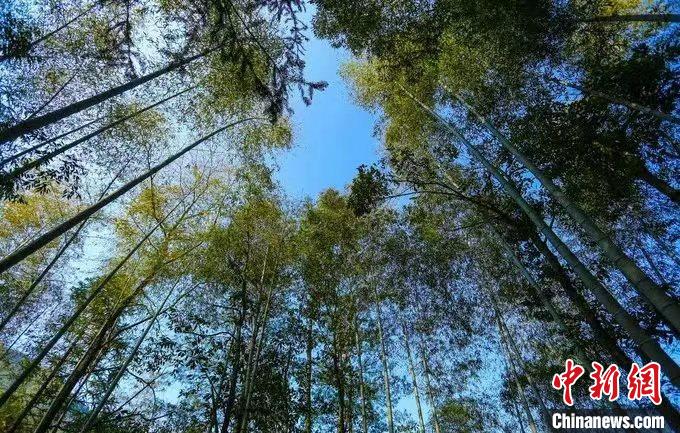




- BRNN
- BRI News
- BRNN News
- Database
Official Documents Polices and Regulations
Inter-government Documents International Cooperation BRI Countries
Business Guide Economic Data BRI Data
Trade
Investment Projects Latest projects
Cases - Content Pool

Photo shows a bamboo forest in Chizhou city of east China's Anhui Province. (Photo courtesy of the publicity department of the Communist Party of China Chizhou municipal committee)
Inside the factory of a moso bamboo product company in the Chizhou high-tech zone in Chizhou, east China's Anhui Province, processing equipment, sorting machines, and polishers rumble steadily as automated production lines churn out moso bamboo straws at a rate of 5 million per day.
Each year, 2 billion straws leave this facility bound for over 40 countries and regions, replacing 6,000 tonnes of plastic and cutting carbon emissions by 36,000 tonnes.
Yet the path to this success was far from smooth. Company head Yin Mingliang saw the market potential of replacing plastic with moso bamboo early on and hired three doctoral research teams in succession to develop the necessary equipment for producing moso bamboo straws. Yet, all three teams failed to break through the technical bottlenecks.
In 2017, a fourth doctoral team took on the challenge. After three years of persistent effort, they finally overcame the technical difficulties. Each machine's output reached 2,000 straws per hour, while unit costs dropped to 0.04 yuan ($0.0056), making bamboo straws cost-competitive with plastic ones.
Chizhou's bamboo forests cover more than 600,000 mu (40,000 hectares), yet much of this resource once went largely unused. In recent years, the city government launched a three-year action plan to accelerate the use of moso bamboo as a plastic alternative, expanding the industry's value chain and boosting farmers' incomes.
"Municipal support for the development of the bamboo industry keeps growing stronger," said Zhang Yu, who oversees a moso bamboo processing base in Meijie town, Guichi district, Chizhou. The base has created jobs for over 40 villagers close to their homes.
The town has built two moso bamboo processing plants with an annual capacity of 35,000 tonnes. The semi-finished products are then shipped to downstream facilities for deep processing.
Chizhou has gradually built an industrial model integrating leading enterprises, circular industrial parks, moso bamboo splitting mills, and village-level moso bamboo planting cooperatives, said an official with the city's forestry bureau.
The city is now home to 89 bamboo processing enterprises, with an annual moso bamboo processing capacity of 900,000 tonnes. In 2024, the city's bamboo industry generated an output value of roughly 3 billion yuan, up 26 percent year on year. The industry supports employment for nearly 40,000 farming households, with average annual household income rising by more than 20,000 yuan.

Tel:86-10-65363107, 86-10-65368220, 86-10-65363106